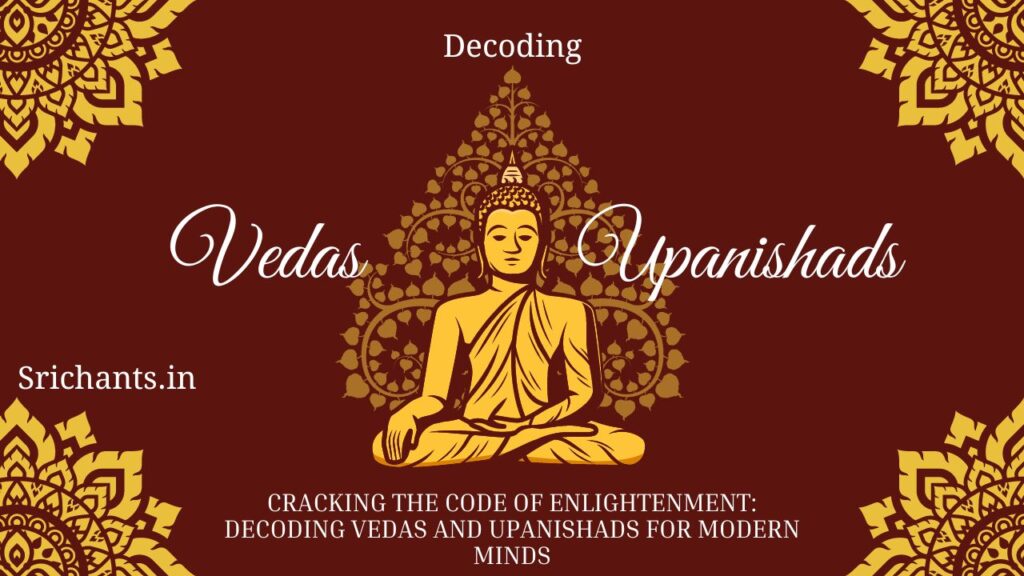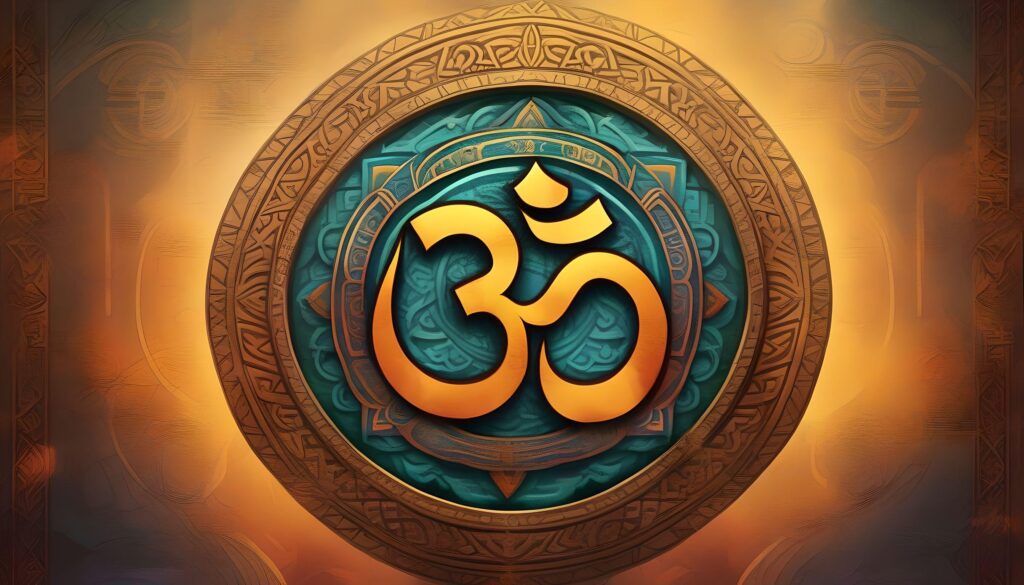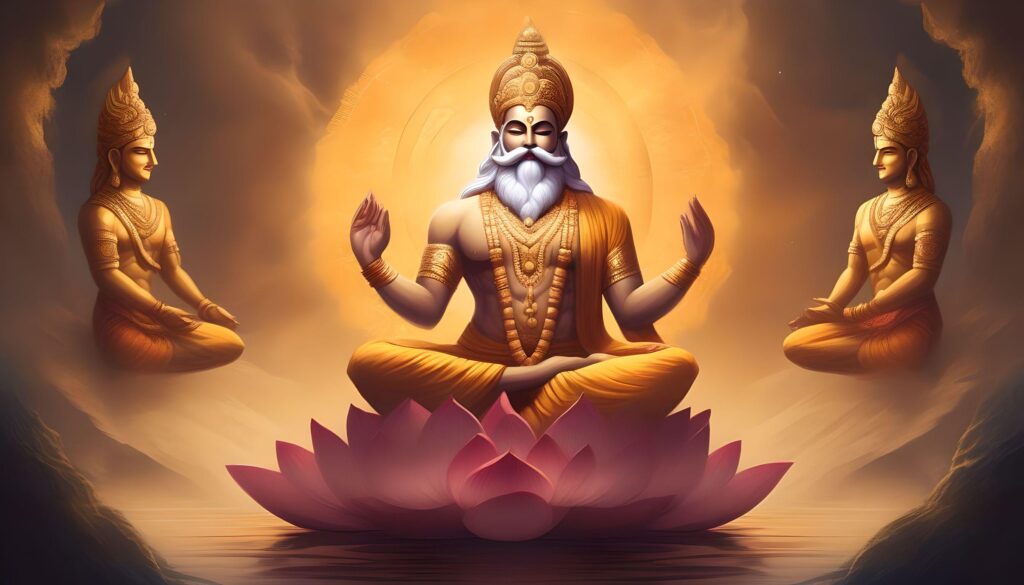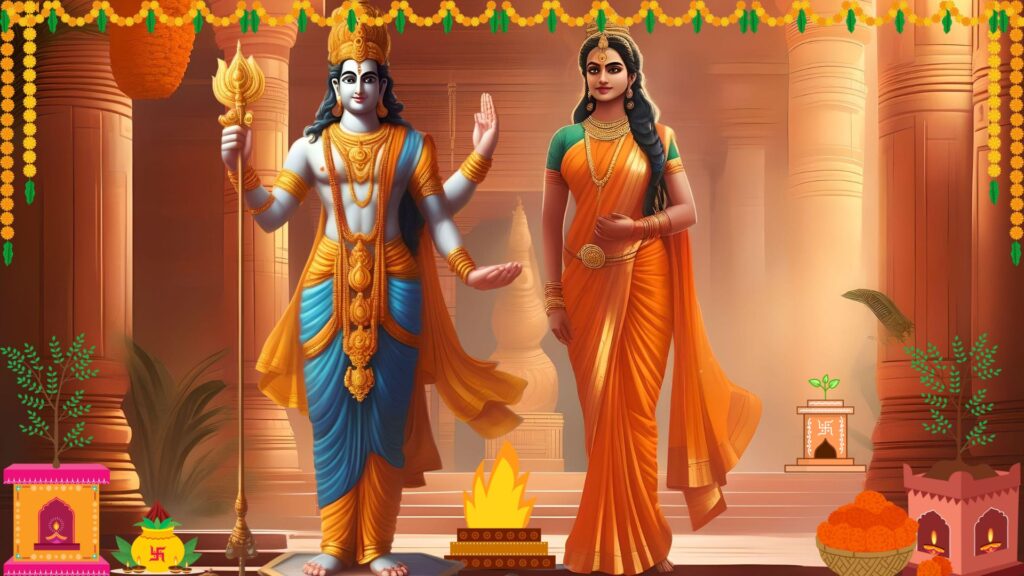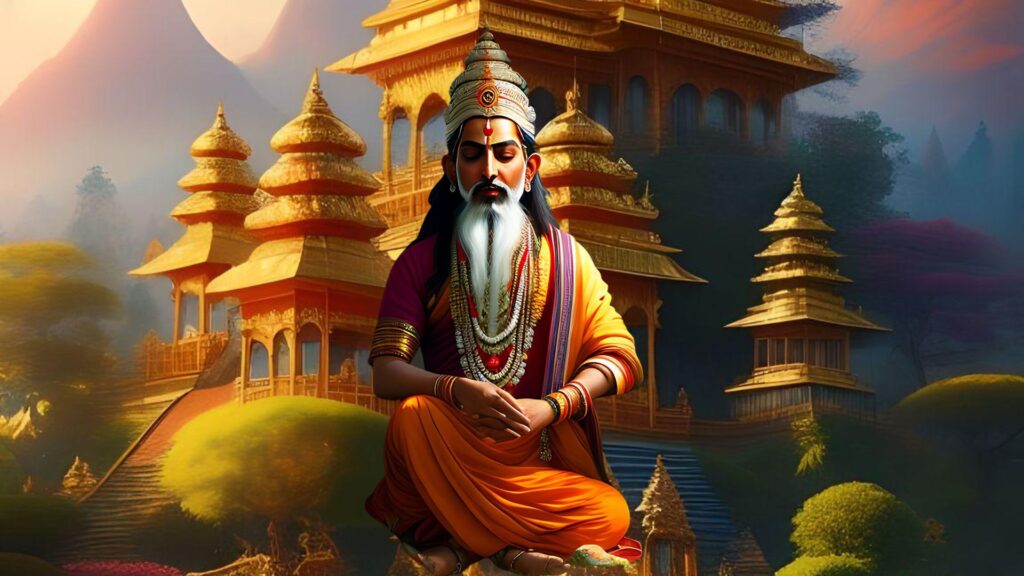Cracking the Code of Enlightenment: Decoding Vedas and Upanishads for Modern Minds
The Vedas and Upanishads occupy a prominent position within the extensive repository of ancient Indian knowledge. For centuries, the religious and philosophical traditions of India have been profoundly influenced by these sacred texts. This article undertakes an investigation into the profound teachings and insights that the Vedas and Upanishads contain.
The Vedas: Foundation of Indian Scriptures
The Vedas, which are regarded as the most ancient scriptures in Hinduism, serve as the bedrock of Indian religious philosophy. Hymns, petitions, rituals, and philosophical reflections comprise their content. In addition to cosmology, ethics, rituals, and spirituality, the “Veda” texts cover an extensive array of topics, where “Veda” signifies knowledge or wisdom.
Historical Background
In light of the historical context, one must contemplate the profundity of these texts. The Vedas were transcribed orally by scholars who diligently safeguarded these verses, transmitting them across successive generations. Prominent individuals such as Vyasa were instrumental in the classification and organization of the Vedic hymns.
Key Concepts in Vedas
Fundamental ideas that have influenced Hindu philosophy and culture are introduced in the Vedas. The law of cause and effect, karma, regulates behavior, whereas dharma delineates the principles of virtuous living. As the ultimate objective, moksha, or liberation from the cycle of rebirth, is envisioned.
Rigveda: The Oldest Veda
The earliest of the Vedas, the Rigveda consists of hymns offered to a variety of deities. This artifact offers valuable perspectives on the religious observances and convictions of the antiquit Vedic society. The hymns comprising the Rigveda sing of divine adoration, benediction, and supplication, all while expressing profound respect for the natural world.
Yajurveda: The Veda of Rituals
The emphasis of the Yajurveda is on the observance of sacrifices and rituals. It offers comprehensive guidelines regarding the appropriate protocols to follow when performing rituals, such as reciting mantras and presenting oblations. The Yajurveda delineates rituals that were fundamental to Vedic society and were instrumental in preserving cosmic harmony.
Samaveda: The Veda of Chants
The principal focus of the Samaveda pertains to the musical dimension of Vedic rituals. Choruses and melodies derived from the verses of the Rigveda comprise it. The participants were said to experience a profound shift as a result of the chants, which they said evoked feelings of spiritual elevation and communion with the sacred.
Atharvaveda: The Veda of Spells and Incantations
A unique Veda, the Atharvaveda emphasizes practical matters such as protection, social harmony, and healing. It comprises hymns, incantations, and spells that are intended to ward off evil entities, cure diseases, and guarantee success in a variety of endeavors. The dynamic development of Vedic philosophy and the incorporation of indigenous folklore are evident in the Atharvaveda.
Upanishads: The Essence of Vedic Knowledge
The Vedanta, which comprises the Upanishads, represents the pinnacle of the philosophical and mystic epoch within the Vedic tradition. These literary pieces delve into fundamental inquiries concerning the essence of being, the individual, and the supreme reality. The Upanishads are regarded as the most esoteric and profound Vedic teachings.
Nature of Upanishads
Since they represent the culmination and finality of Vedic knowledge, the Upanishads are frequently called the “end of the Vedas.” They are distinguished by their devotion to the acquisition of knowledge and their quest for moksha, or spiritual liberation. The interdependence of all beings and the fundamental essence of reality are profoundly explored in the Upanishads.
The Role of Upanishads
Upon entering the realm of the Upanishads, one is confronted with profound philosophical doctrines. These sacred texts, which are regarded as the pinnacle of Vedic philosophy, delve into the fundamental aspects of reality, the ego (Atman), and the supreme reality (Brahman). In contrast to the Vedas, which center on ceremonial practices and rituals, the Upanishads delve into metaphysical and spiritual inquiries.
Meaning of the Word ‘Upanishad’
The word “Upanishad” originates from the root words “Upa” and “Ni,” which signify “sitting in close proximity” or “sitting with devotion.” It pertains to the revered sessions during which the instructor bestows confidential wisdom upon the merited pupil. The Upanishads are venerated as repositories of sacred doctrines and profound spiritual teachings.
Number of Upanishads
The precise quantity of Upanishads is a matter of conjecture, as various estimations vary from approximately 108 to more than 200. The Upanishads are correlated with each of the four Vedas, although certain Upanishads exhibit a stronger association with particular Vedic branches. The Dashopanishads, a collection of ten Upanishads, hold paramount significance in the Vedantic tradition amidst the vast collection of Upanishads.
Major Themes of Upanishads
The Upanishads delve into profound philosophical subjects in an effort to elucidate the essence of being and the ultimate nature of reality. Their thoughts wander towards the contemplation of spiritual liberation, the meaning of human existence, and the essence of the universe. The Upanishads place significant emphasis on the pursuit of self-realization and knowledge as methods to surpass the cyclical nature of existence and mortality.
Importance of the Upanishads
The Upanishads have played a pivotal role in the evolution of philosophical thought in India. They are held in the highest regard as the definitive authorities on a multitude of philosophical systems, such as Nyaya, Vedanta, Sankhya, and Yoga. A comprehensive comprehension of Indian history, culture, and spirituality is provided by the Upanishads. They persistently motivate individuals in pursuit of the truth and function as a beacon of guidance for spiritual aspirants across the globe.
Philosophical Teachings of Upanishads
The Upanishads embark readers on a metaphysical expedition, delving into the intricate relationship between Atman and Brahman. Ideas such as ‘neti neti’ (not this, not that) prompt us to examine our own perceptions and pursue the eternal truth. These teachings are echoed in numerous spiritual traditions throughout the world.
Conclusion
The ancient Indian Vedas and Upanishads serve as repositories of profound wisdom. The Vedas offer an all-encompassing comprehension of cosmic order, rituals, and spirituality, whereas the Upanishads explore the most profound philosophical and metaphysical domains of human existence. Through an examination of these revered scriptures, we acquire profound understandings of the eternal knowledge that has influenced the development of Indian civilization for countless centuries. We should persist in our exploration of these ancient scriptures in order to unveil the concealed aspects of our spiritual heritage.
FAQs about Vedas and Upanishads
- Q: Can I study Vedas and Upanishads without any background in Hinduism?
- A: Absolutely. Many translations and commentaries are available, providing insights for readers of diverse backgrounds.
- Q: Are there English translations available for Vedas and Upanishads?
- A: Yes, numerous scholars have translated these texts into English, making them accessible to a wider audience.
- Q: How do the concepts of karma and dharma apply in modern life?
- A: The principles of karma and dharma offer ethical guidelines, applicable to navigating contemporary challenges.
- Q: Are there any specific rituals mentioned in the Vedas that are still practiced today?
- A: Yes, some Vedic rituals have evolved and are still practiced in modified forms within the Hindu tradition.
- Q: Can the teachings of Upanishads be applied in non-religious contexts?
- A: Absolutely. The Upanishadic teachings delve into universal truths and can be applied in various spiritual and philosophical contexts.
Keywords: Vedas, Upanishads, Rigveda, Yajurveda, Samaveda, Atharvaveda, Vedanta, Vedic knowledge, philosophy, spiritual liberation, Dashopanishads, Indian civilization, cosmic order, rituals, self-realization
